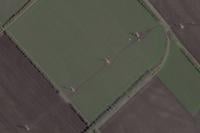A senior United Nations official has sought to calm fears regarding the safety of Ukraine’s Zaporizhzhia nuclear plant, one of the largest in Europe, amid ongoing concerns about its vulnerability due to the ongoing Russia-Ukraine conflict. According to Rafael Grossi, Director General of the International Atomic Energy Agency (IAEA), there is currently no evidence suggesting that Russian forces are imminently planning to target or activate the plant’s nuclear systems in any way that could lead to disaster.
This statement comes after weeks of heightened alarm surrounding the plant, which has been under Russian control since March 2022. Despite the ongoing military confrontation around the region, Grossi emphasized that the IAEA continues to monitor the situation closely, with inspectors onsite regularly ensuring that safety protocols are followed and that no immediate threat to the facility’s operations exists.
“The situation remains serious, but we are not facing an imminent nuclear catastrophe,” Grossi said during a recent briefing at the UN Headquarters. “Our teams are on the ground, and we are in constant communication with both Russian and Ukrainian authorities to ensure that nuclear safety and security standards are upheld.”
The Zaporizhzhia plant, located in southern Ukraine near the frontlines of the war, has become a focal point in global concerns over nuclear safety amid the conflict. The facility’s reactors, though physically intact, have been subject to sporadic shelling and military activity, raising fears of a potential disaster similar to the 1986 Chernobyl meltdown.
For months, both Ukraine and Russia have accused each other of endangering the plant’s safety, with Ukraine alleging that Russian forces are using the facility as a military base, storing weaponry and launching attacks from its premises. Meanwhile, Russia has accused Ukraine of shelling the plant and endangering its security.
Despite the risks, Grossi’s comments provide some assurance, noting that the plant has not experienced significant damage to its critical infrastructure or nuclear reactors. He stressed that the IAEA’s role is to maintain a neutral stance and continue to verify that both sides comply with international nuclear safety regulations.
“The nuclear security of Ukraine, and indeed of Europe, remains a top priority,” Grossi stated. “We continue to stress the importance of demilitarizing the area around the plant and ensuring that it is used solely for peaceful purposes.”
This statement from the IAEA comes as both sides prepare for an uncertain and potentially intense phase of the war, with no clear resolution in sight. In the meantime, global leaders have called for greater efforts to protect nuclear sites and prevent further escalation of the crisis.
In the backdrop of Grossi’s reassurances, concerns about the long-term impact of the war on Ukraine’s energy infrastructure remain high. The Zaporizhzhia plant has long been a vital source of electricity for southern Ukraine, and its disruption could have dire consequences for the region’s power supply, especially during winter months when demand spikes.
The international community remains on high alert, with countries and organizations urging both Russia and Ukraine to prioritize nuclear safety. With the plant still under Russian control, the world watches closely, hoping for continued diplomatic and technical efforts to prevent any further risk to global nuclear security.
Swifteradio.com


